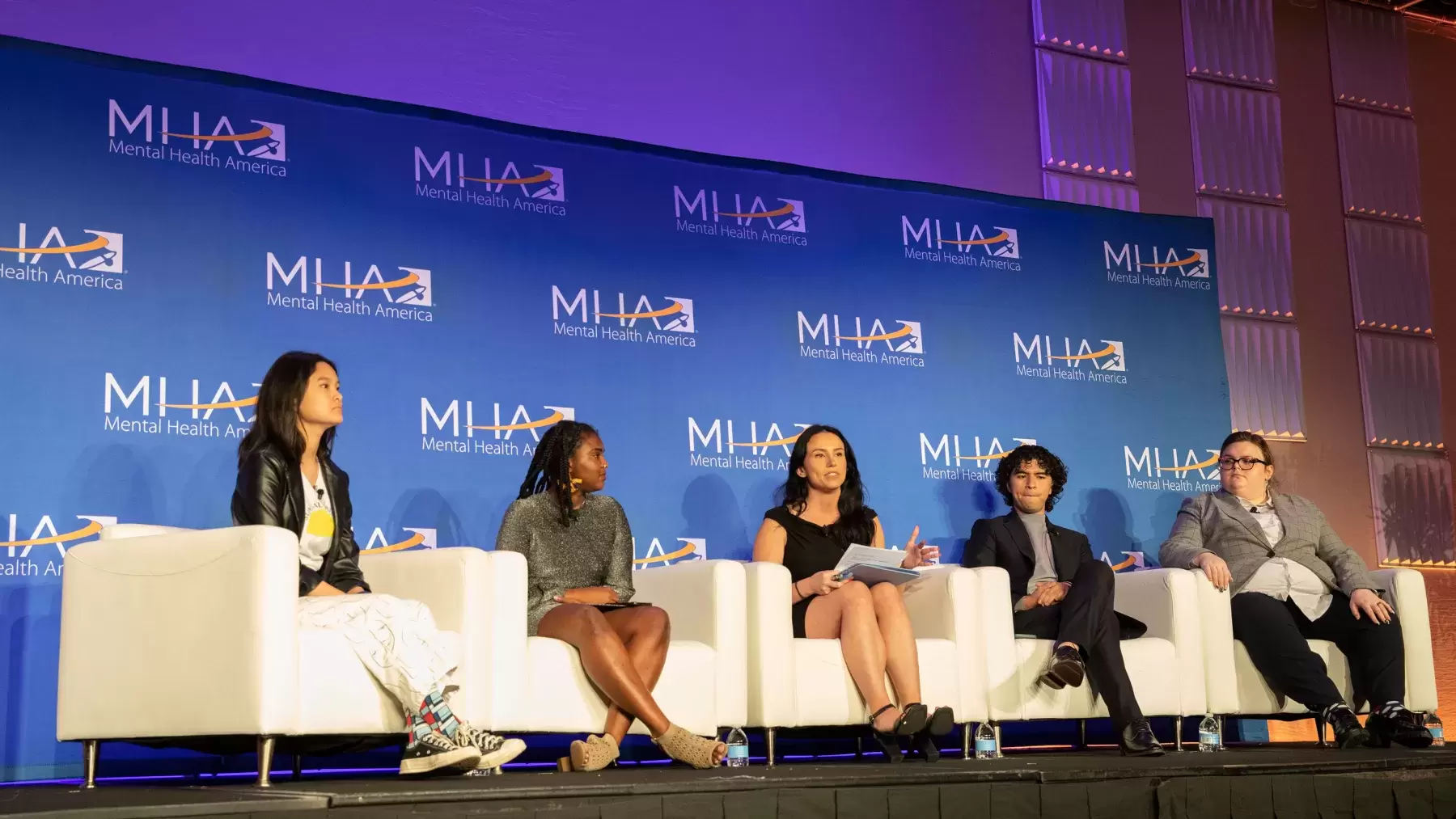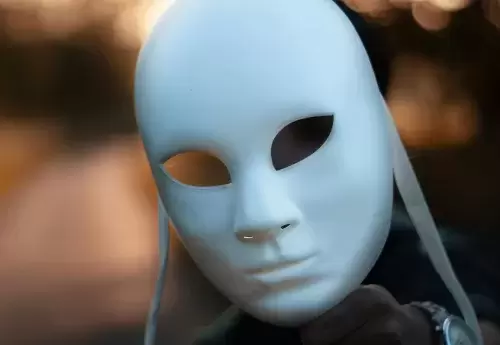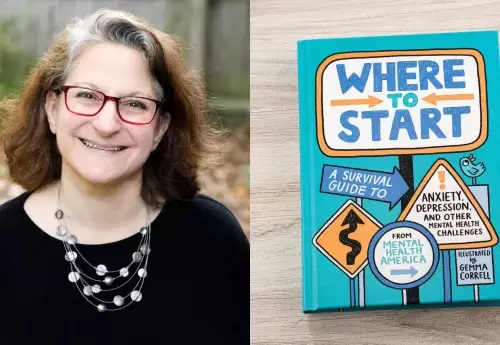
The second day of the 2023 Mental Health America Conference saw a packed lineup of speakers, award presentations, and discussions and networking amongst in-person attendees.
Miriam E. Delphin-Rittmon, Assistant Secretary for Mental Health and Substance Use in the U.S. Department of Health and Human Services and the Administrator of the Substance Abuse and Mental Health Services Administration, opened the day. She gave a presentation on behavioral health data, promoting resilience and updates on SAMHSA programs.
“We very much want children, youth, and families basically to be able to thrive in their homes and in their communities,” Delphin-Rittmon said. “Ultimately, that’s what I think a lot of our work is about helping communities and individuals to thrive.”
Delphin-Rittmon also took questions from the audience, including from Anthony Sartori, a former member of Mental Health America's Young Mental Health Leaders Council and founder and director of Evolving Minds, who asked about how youth can be successful in the grant-writing process. “We have an initiative going on right now so they’re not as complicated,” she said and included other information about improving grant application skills.
Rachel Aviv, author and staff writer at The New Yorker, talked about her book “Strangers to Ourselves: Unsettled Minds and the Stories That Make Us” and her personal lived experience with mental illness. “I had a sense people with mental illness felt they had something that was impossible to communicate,” she said, adding that the words experts use are often inadequate.
While researching her book, Aviv read the manuscript of MHA founder Clifford W. Beers’ experience of being institutionalized “The experience of reading his own words in his own handwriting reinforced the idea of telling the stories of people with lived experience,” Aviv said.
Mental Health America Youth Mental Health Leadership Council members Crystal Widado, Rei Scott, Mariama Bah, and Jose Caballero took the main stage for a conversation with Kelly Davis, MHA associate vice president of peer and youth advocacy.
"What’s missing from this Gen Z conversation is that we need to be looking at mental health on a systemic level rather than just an individual level,” Widado said. “It’s not just about our own personal mental health … mental health isn’t just about quick slogans we can slap onto profitable merchandise. It’s important that we look at mental health as the major crisis that it is for youth, while still affording ourselves hope that it can improve."
Caballero said, “How are we supposed to be the hope for the future if we’re still struggling to have a seat at the table?”
“The time for action is now,” Scott said. “It’s not tomorrow. It’s not far in the future. It’s now. If you have any sort of power within these systems or in this field, I would urge you to take action – especially for those with intersectional identities who are most vulnerable.”
Bah said, “A code that I go by every single day is to live boldly and live joyfully.”
Scott, who is also a president of the Students With Psychosis Executive Board, and Davis, later in the day after the youth panel, spoke at different panels.
"While peer support does not replace professional help, professional help also does not replace peer support," said Scott during the Students Organizing for Mental Health Disability Justice session.
“How can we do intervention for young people when the threshold is so high?” Davis said at the Supporting Youth Substance Use and Addiction Recovery From a Peer Perspective session. “We live in a profoundly anti-youth culture.”
Annual MHA awards were presented throughout the day.
The 2023 MHA mPower Award was presented to Aliza Lopez. The mPower award celebrates the life and work of a teen or young adult who has spoken out about mental health issues to educate his or her peers and fight stigma. Lopez is a 17-year-old health care advocate, mental health activist, and researcher who directs the 501(c)(3) organization, Medicine Encompassed.
“If I said this award belonged only to me, I’d be undermining the collective work of young folks today,” Lopez said. “Let’s continue to give young people a seat at the table.”
MHA’s 2023 George Goodman Brudney and Ruth P. Brudney Social Work Award was presented to Diana Anzaldua, a licensed clinical social worker and trauma-resilient therapist in Austin, Texas. The award recognizes significant contributions made to the care and treatment of people living with mental illnesses by practicing professionals in the field of social work. Anzaldua, who founded the award-winning Austin Trauma Therapy Center, accepted the award in person and said, “As a healing worker and social worker, the work we do creates ripples for a beautiful future.”
MHA’s 2023 Richard Van Horn Innovation in Programming Award was presented to the Mental Health America of Ohio for the POEM (Perinatal Outreach & Encouragement for Moms) program, which closes gaps in care for pregnant and early parenting people with mental health complications. The award recognizes the continuing innovation and creativity of an MHA Affiliate in program development and implementation. Tonya Fulwider, associate director of MHAOhio and co-founder of POEM, accepted the award. “The POEM program staff … are the soul of this program,” Fulwider said. “We absolutely must both provide real access and appropriate, knowledgeable, and prompt care."
MHA’s 2023 Joseph de Raismes III Policy Award was presented to Moe Keller. The award honors an individual who – like Raismes – makes outstanding contributions to furthering mental health policy. Keller was the director of advocacy for Mental Health Colorado for 12 years until her retirement in 2022. In her acceptance speech, Keller spoke about the importance of teamwork in mental health policy. “There is a saying that I truly believe, ‘The world is run by those who show up,’” Keller said. “Well, Mental Health America, meaning all of you in this room, your staff, the affiliates, families – you showed up.”
MHA’s 2023 Betty Humphrey Equity Champion Award was presented to Mental Health America of Central Carolinas. The award is given to an individual or organization for demonstrating an ongoing commitment to the fight for diversity, equity, and inclusion. Kathy Rogers, MHAofCC executive director, and Megan Bryant, MHAofCC counseling center clinical director, accepted the award on behalf of MHAofCC, which has been the voice of hope for those impacted by mental illness in the greater Charlotte area since 1933. “This is a reminder of the responsibility we have to this program,” Bryant said. “We will strive to uphold the standards that this award represents.”
MHA’s 2023 Media Awards were presented to:
- Christine Herman, for her story, “Families take drastic steps to help children in mental health crises,” published by the Center for Public Integrity. “I wanted to learn and report and who is doing it better,” Herman said of her award-winning story.
- The newsroom and production team at KFSN-TV ABC30 for “A Critical State of Mind.” “When we set out to make ‘A Critical State of Mind.,’ we wanted to share stories of those who had suffered,” said Tim Sarquis, executive producer, said. “What we did also find was something amazing – good people who are not afraid of stigma. People who are not afraid to relive their darkest days.”
- Morra Aarons-Mele, creator and host of “The Anxious Achiever Podcast for LinkedIn Presents.” “The common thread is that everyone on the show is really successful … Of course leaders struggle, they struggle like the rest of us,” Aarons-Mele said when she accepted the award. “[With this podcast] we can provide inspiration, hope, advice and really useful tools.”
- Renee Shaw, director of public affairs and moderator at Kentucky Educational Television, for her work as host of KET’s weeknight public affairs program Kentucky Edition. Shaw shared what she calls the “Four As'' of mental health advocacy work: awareness, access, acceptance, and action. She also talked about how she integrates mental health into her own life and work and tells people, “You can have Jesus and a therapist at the same time … you can have prayer and a prescription. They are not competing interests.”
- Mardy Fish and directors/executive producers Chapman Way and Maclain Way, for Netflix's "Untold: Breaking Point." “This would not be possible without him sharing his remarkable story,” Chapman Way said.
Steven Haden led the session The Importance of Providing Culturally Relevant and Affirming Care to Members of the LGBTQ+ Community. “Make no mistake, socioeconomic, and political violence is unfolding across the U.S. at unprecedented levels. We are living in a state of crisis, and it takes all of us to begin addressing these issues in a meaningful way,” Haden said. “Violence and oppression are not new against LGBTQ people, but today we are talking about eradication. This kind of rhetoric is incredibly harmful and dangerous.”
Breyonna Kelton, peer program director at the New Jersey Prevention Network, led Creating the Best Growing Conditions for You: Refining Storytelling with Lived Experiences session. “You don’t need to be an expert or have the same exact experience to connect to another person,” Kelton said.
Amba Kasongo, home delivery programs manager – community partnerships at Philabundance was part of the panel Cross System Collaborative Efforts Addressing Social Determinants of Health: Economic Stability, Food, Technology, and Transportation. “In my 10 years of public service, I’ve found that speaking to the people that I serve proves to be a lot more efficient long term because I learn what it is that they actually need,” Kasongo said.
Dr. Pata Suyemoto, training director for the National Asian American Pacific Islander Mental Health Association, spoke at the Unheard Stories: Unique Voices of Asian American, Native Hawaiian and Pacific Islander People with Lived Experiences session. “Trauma is a thread that passes through all of our communities,” Suyemoto said. “It took 40 years for a therapist to ask me what impact being a Japanese American woman had on my mental health.”
Watch a recap




